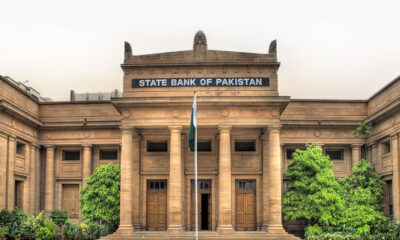- Govt to announce decision after taking IMF on board within next few hours, says minister.
- Consumers using up to 400 units per month can be given relief.
- QTA of up to Rs6 per unit on power bills will have to be passed.
ISLAMABAD: Amid unabated countrywide protests against inflated electricity bills, the federal cabinet meeting on Tuesday failed to announce immediate relief for inflation-hit masses and decided to seek an International Monetary Fund (IMF) nod before approving any proposal.
The cabinet meeting presided over by caretaker Prime Minister Anwaar-ul-Haq Kakar discussed proposals to provide relief the consumers consuming up to 400 units per month for the months of August and September, The News reported on Wednesday.
After attending the cabinet meeting, caretaker Information Minister Murtaza Solangi said the government would announce the decision after taking the IMF on board within the next few hours.
“Caretaker Finance Minister Dr. Shamshad Akhtar is in contact with the IMF officials in this connection,” said a statement issued by his office Tuesday night referring to his talk to a private television channel.
The minister said some proposals came up for discussion before the cabinet and some of them had been approved. “It is mandatory to take the IMF on board with regard to some decisions,” Solangi said.
He pointed out that the caretaker cabinet had decided to take measures to provide relief to power consumers without affecting the primary surplus and circular debt.
Official sources said the federal cabinet meeting continued for around two hours and approved some of the proposals referred to the forum by the Power Division.
It’s learnt that as per the decision taken by the federal cabinet, there would be no reduction in power tariffs but consumers using up to 400 units per month for the months of August and September would be given relief in terms of adjustments in the next six months.
They said the cabinet expressed serious concern over the countrywide demonstrations against the electricity bills. At the same time, it was also observed that the government’s hands were tied due to the IMF agreement.
The Power Division also briefed the federal cabinet on free electricity provided to the VVIPs, VIPs and employees and officers of power distribution companies.
It was decided to look into the issue while observing that no decision should be taken in haste and apprise the public of the factual situation.
It may be pointed out that the caretaker prime minister himself had given 48 hours to the authorities concerned to come up with proposals for providing relief to the power consumers.
For the fifth consecutive day on Tuesday, there were demonstrations across the country as the protesters publicly burnt bills and refused to pay them.
The decision has been taken in the wake of a tight fiscal position on account of achieving the primary deficit and circular debt within the envisaged limits of the lender.
There is no possibility of bringing down the staggering taxes because it will result in deviation from the primary surplus agreed with the IMF.
The government will have to seek the endorsement of the Fund staff for collecting the August and September dues from consumers — utilising up to 400 units — in a phased manner.
Secondly, the government will have to pass on the Quarterly Tariff Adjustment (QTAs) in the range of Rs4 to 6 per unit, so it was also proposed to be staggered over a four to six-month period. Without getting the nod of the cabinet, it is not possible to table a set of proposals before the IMF. Now the IMF staff will be approached for endorsement of the monthly relief against the inflated bills.
“The massive devaluation of the rupee against the dollar has multiplied capacity repayments which have now ballooned to Rs2.2 trillion. Secondly, the upsurge in the policy rate has also jacked up the borrowing cost of local power producers. We have been left with no option but to stagger the hiked electricity bill for those using up to 400 units only. There will be no relief for those using above 400 units,” top official sources confirmed to The News in background discussions after the cabinet meeting chaired by the caretaker Prime Minister Anwaar-ul-Haq Kakar.
Another top official, who deals with the power sector, said in the wake of the lowest domestic savings rate in the whole of South Asia, Pakistan had to rely upon foreign savings, so the independent power producers (IPPs) brought foreign savings to invest in the power sector.
Initially, the exchange rate was stabilised through unsustainable methods and finally the paucity of dollars exposed the exchange rate vulnerability. Now the rupee-dollar rate has crossed Rs300 mark in the interbank market while the rate of the open market is on the much higher side.
“If all other factors of power had remained constant, even then the devaluation of the exchange rate would have caused a two-third hike in the electricity prices,” the official said, adding that the government had to rely upon foreign savings because the country could not jack up its tax-to-GDP ratio, so fiscal space was not available to construct our power plants with domestic resources.
Now foreign investors have to repatriate profits and dividends, thus exerting pressure on the exchange rate.
The other losses of the power sector, he said, also remained problematic for the cash-bleeding power sector which, according to rough estimates, caused annual losses of Rs900 billion.
Now under the IMF program, there are two avenues to provide fiscal incentives to the power sector — hiking the primary deficit or allowing a surge in the circular debt, as there is no other way available to the government at this point of time.
Now the proposals approved by the cabinet will be tabled before the IMF Tuesday night or within the ongoing week and after getting go-ahead, the government will announce its relief package for power consumers.

 Latest News2 days ago
Latest News2 days ago
 Latest News2 days ago
Latest News2 days ago
 Latest News2 days ago
Latest News2 days ago
 Latest News2 days ago
Latest News2 days ago
 Latest News2 days ago
Latest News2 days ago
 Latest News2 days ago
Latest News2 days ago
 Latest News2 days ago
Latest News2 days ago
 Latest News2 days ago
Latest News2 days ago























